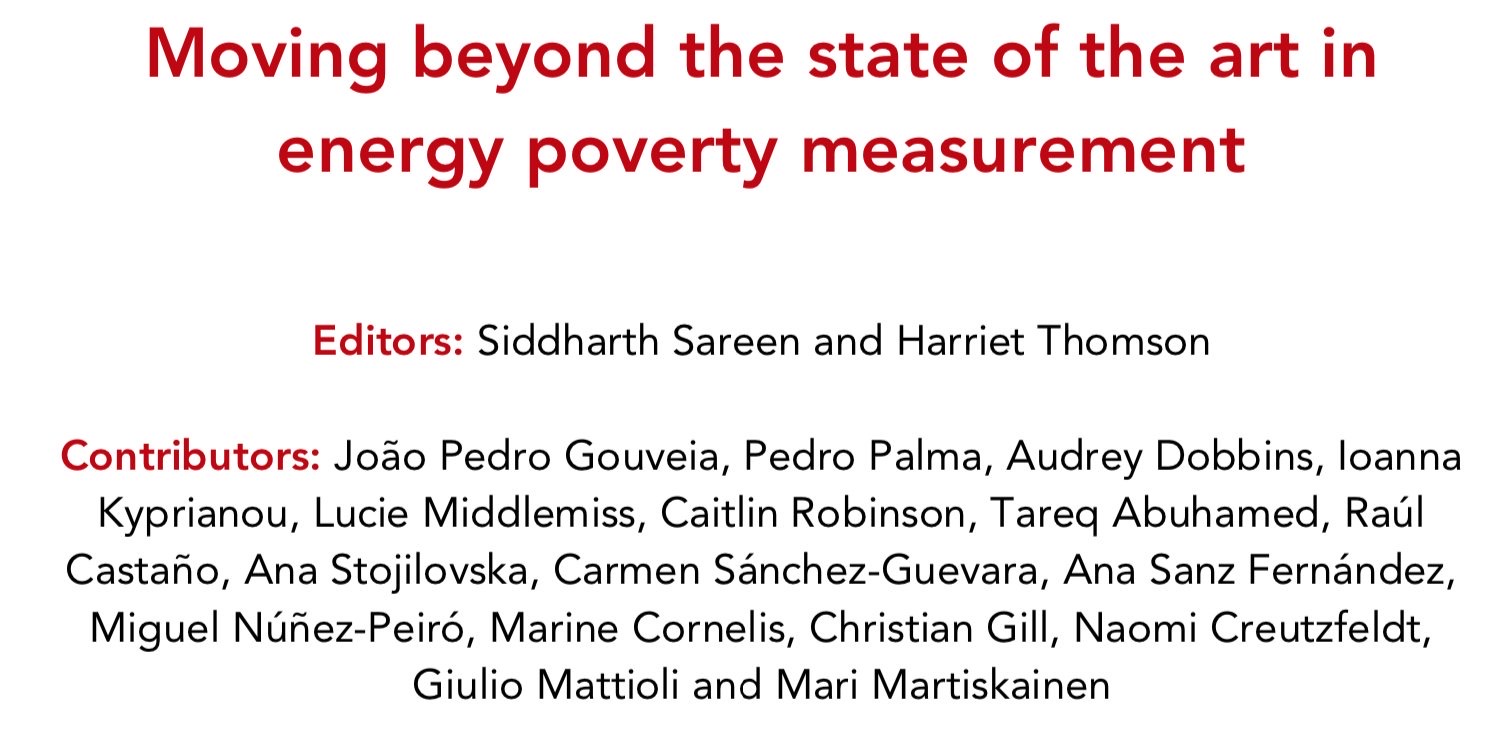I have contributed to a new report on the current state of the art in energy poverty measurement, overviewing existing knowledge gaps and new approaches as part of the ESRC Just Energy team. Siddharth Sareen and Harriet Thomson have edited this report as part of their outstanding work in the ENGAGER COST Action.
With input from seventeen leading experts, this report provides an excellent overview of ongoing discussions on energy poverty. It provides cutting edge insights on energy poverty metrics – in terms of common and emerging approaches, and policy levers for energy poverty governance. The report also overviews existing knowledge gaps and provides recommendations for further action.
ESRC Just Energy research project looks at the links between energy poverty and vulnerability and access to justice. Our contribution focuses on complaint service metrics, which have been identified as major gaps we should urgently address.

Find here an excerpt:
Complaint service metrics (by Marine Cornelis, Christian Gill and Naomi Creutzfeldt)
Analysing consumer complaints is one of the best ways to monitor a given market and assess any innovation to identify and address its shortcomings. Trust in the energy sector is low in all European countries (European Commission, 2018). This translates into a higher proportion of disputes and higher detriment scores on the Consumer Markets Scoreboards. Data collected by energy consumer dispute-resolution services and ombudsmen confirm these trends: overall, in Europe, most registered complaints are related to invoicing and billing, followed by metering and meter-related issues. Complaints related to payment problems and commercial practices are on the rise, as are misleading and unfair practices in doorstep-selling, especially in France and Belgium.
These data suggest a strong correlation with the (financial) well-being of the people, their energy expenditures, and behaviour. (…)
Research on users of alternative dispute resolution (ADR) uncovered that a typical complainant is male, middle-aged, white (according to the UK statistics), and educated. This is the same demographic that arguably has access to, and can confidently navigate, the legal system. What about others whom ADR is also supposed to help – those who are vulnerable, those who have trouble understanding the system, and those who are excluded from knowing where to turn for help? This is a massive gap that ADR does not cover enough at present.



